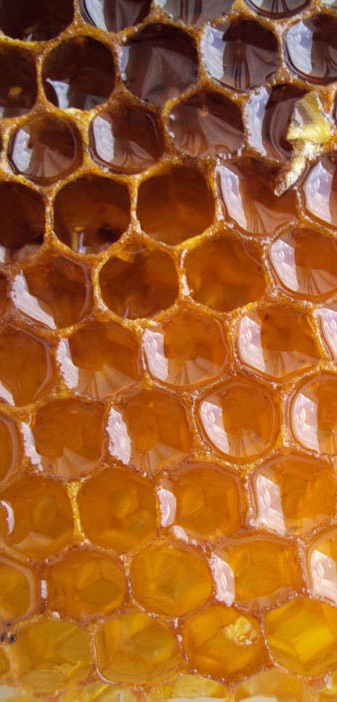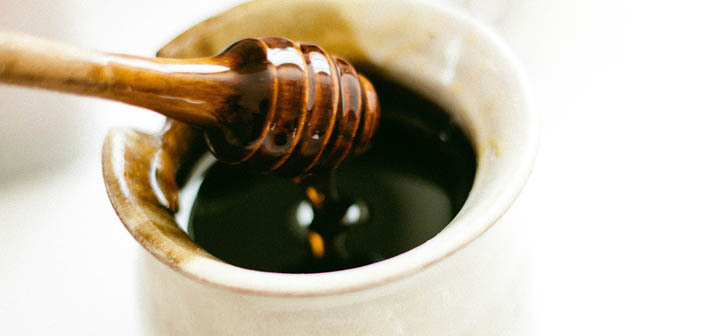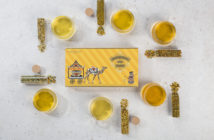Next time you add a spoonful of honey to your cup of tea, pause and consider that you are about to partake of one of the oldest medicines known. The use of honey—and, indeed, bees and all their byproducts—as medicine goes back thousands of years and has lead to countless studies as well as alternative treatments such as apitherapy.

Both scientific research and folk lore have listed honey as a treatment for allergies, sore throat, heart disease, stomach ulcers, skin problems, cancer, and more. According to a 2011 article in the Asian Pacific Journal of Tropical Biomedicine, “honey is hygroscopic, which means that it can draw moisture out of the environment and dehydrate bacteria, and its high sugar content and low level pH can also prevent the microbes from growth.” In other words, it’s antimicrobial.
The National Institutes of Health agrees, citing honey as hygroscopic, antibacterial, and anti-inflammatory as well as an affective debriding agent for wound treatment. Many of these antimicrobial benefits come from hydrogen peroxide, which exists in honey thanks to the bees who add to it the enzyme glucose oxidase.
 While some folks shy away from honey due to its sweetness factor, it should be noted that it falls lower on the glycemic index than sugar—and has far more nutritional benefit. The sweet nectar of the bees is rich in nutrients, including iron, calcium, potassium, riboflavin, and zinc, and the glucose it contains packs an energetic punch that will fuel your workout.
While some folks shy away from honey due to its sweetness factor, it should be noted that it falls lower on the glycemic index than sugar—and has far more nutritional benefit. The sweet nectar of the bees is rich in nutrients, including iron, calcium, potassium, riboflavin, and zinc, and the glucose it contains packs an energetic punch that will fuel your workout.
Choosing Healthy Honey
When staring at the many varieties of honey on display at your grocery store, there are a few things to keep in mind if you want the most nutritional value.
Go Raw: Heat can destroy the beneficial enzymes and nutrients in honey, so for maximum impact go for raw, unpasteurized “bee juice”. If you’re feeling extra brave, pick up some honeycomb or unfiltered honey!
Choose Organic: Most commercially produced honeys are made from the nectar of flowers that have been sprayed with pesticides. While you can’t fully control where your bees go to get their pollen fix, organic honey producers do their best to make sure the flowers and other plants surrounding their hives are organically grown and pesticide free. The hives must be located more than 2 miles, as the bee flies, from any potentially contaminating pollution sources.
The Darker the Better: Generally speaking, the darker the honey the more nutritional value it has. There are exceptions, but this is a pretty good rule of thumb.




